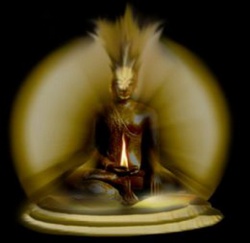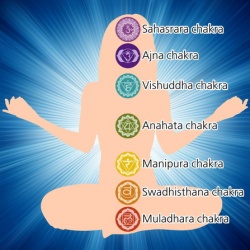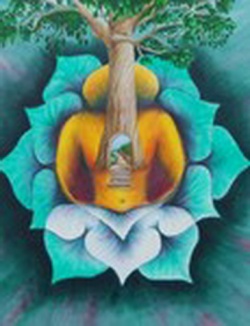Five poisons
The five poisons (Skt. pañca kleśaviṣa; Wyl. dug lnga) are the following disturbing emotions:
These five can be further condensed into the three poisons: pride is a combination of ignorance and desire (or attachment), and jealousy is a combination of attachment and aggression.
Source
(1) greed, which also includes selfish desire, avarice, craving, etc.;
(2) hatred, which also includes anger, ill-will, aversion, resentment, etc.;
(3) ignorance, sometimes referred to as delusion;
(4) pride, which also includes arrogance and conceit; and
(5) doubt, which is basically limited to doubt about the Buddha, the Dharma, the Sangha, and the Master.
The first three are also known as the three poisons.
The Five Poisons and their Antidotes
Whether you hear the teaching, study it, or practice, during that time you need to generate bodhicitta. There are two kinds of bodhicitta. The first is the wish to benefit all sentient beings. The second is the realization of emptiness. So how is it cultivated? First you develop love and compassion to yourself and then extend it to all beings of the three realms. These are the desire realms, form realm, and formless realms. In the desire realm there are six realms, the three higher and three lower realms. The three lower realms are the animal realm, hell realm, and hungry ghost realm. These realms are filled with suffering. The three higher realms have less suffering than the lower realms, but still have suffering. So understanding the suffering of beings, one should dedicate oneself to dharma practice, so one can liberate them.
Compassion and emptiness go together. To attain the realization of emptiness you must start with the basic practices, such as shamatha meditation. Then you practice vipashyana meditationd so on. So you must have an unshakable motivation to benefit beings and understand the four thoughts that turn the mind to the dharma. The first is the appreciation of our precious human life. It is called precious because it has the eight leisures and the ten endowments. So we have the tremendous opportunity to practice dharma. This opportunity is the result of our previous good karma. You can investigate this yourself by putting yourself in an animal's place. A tiger or lion may be strong, but they can be captured or killed by hunters because of their superior intelligence. There is no guarantee we will be reborn as a human. Afflictive emotions command us, so the cause for rebirth in lower realms is there. We need to control them instead. Then we can be sure we will not be reborn in the lower realms.
The second of the four thoughts is impermanence and death. When you appreciate this, you will take karma seriously. The third thought is the invariable law of karma. There are the ten unvirtuous deeds that need to be abandoned and their ten opposite virtuous deeds that need to be taken up. Whatever deed you do will be repaid five hundredfold. But this is not a firm limit. Also one habitual tendency carries on from life to life. And you will be born in an environment such as one which is poor or has civil war.
This afternoon's topic is on how we transform the five poisons into the five wisdoms. There are three ways, the Hinayana, the Mahayana, and the Vajrayana. We are attached to our physical body or wealth, and so on. This attachment needs to be abandoned. In the Hinayana the objects of attachment are seen as impure. and thus not to be clung to. Not only attachment, all the five afflictive emotions are seen as impure. So that is how we practice in the Hinayana way. The Mahayana way is to apply an antidote to the affliction. The antidote for anger is love. We usually only think of this life and not the next. To counteract that, we should meditate on impermanence. That is the Mahayana method of practice. If you consider yourself a Vajrayana practitioner, you should look at the inherent nature of the afflictive emotions. For example, if you are angry, you do not have to think that the anger is bad. Instead, look at anger and try to find its location, its shape, color, and size. You will not be able to find these, or anything whatsoever. Instead the anger's nature is emptiness. So the nature of the afflictive emotions is the primordial wisdom. When you cannot find anger's inherent nature, that unfindability is the mirror-like wisdom. So without afflictive emotions you will not be able to realize this mirror-like wisdom.
All Buddhas possess the five primordial wisdoms and the four kayas. The first of the five male wisdom beings is Vajrasattva in the East, or Akshobhya. His quality is mirror-like wisdom, which is transformed anger. The consort of Akshobhya is Vajra Dakini. The second affliction is pride. When it is transformed, it becomes the wisdom of equanimity, which is Ratnasambhava in the South. and whose consort is Rinchen Dakini. The third affliction is attachment, which is transformed into the wisdom of discriminating awareness, the quality of Amitabha, the Buddha of the West. The consort of Amitabha is Lotus Dakini. The fourth affliction is jealousy. It is transformed into all accomplishing wisdom whose deity is Amoghasiddhi in the North, and whose consort is Karma Dakini. The fifth affliction is ignorance which is transformed into all pervasive wisdom, the Buddha Vairochana in the center, whose consort is Buddha Dakini. These wisdoms are not separate. When you realize one, you realize them all. If we chase after them, the afflictive emotions are afflictions. The reason why the five Buddhas have five consorts is to symbolize the unity of wisdom and means, or emptiness and bliss.
Source
- 1. Attachment
- 2. Anger
- 3. Ignorance
- 4. Jealousy
- 5. Doubt
(sometimes others are counted, the first 3 however are always present)


